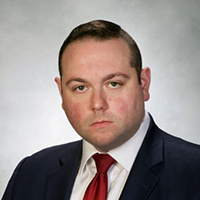Feasterville Trevose Felony Lawyer, Pennsylvania
Sponsored Law Firm
-
 x
x

Click For More Info:
-
Law Office of Mark S. Guralnick
55 Madison Avenue 4th Floor Morristown, NJ 07960» view mapCriminal Defense Law Dedicated. Fearless. Successful.
Mark S. Guralnick and his legal team have helped clients throughout the USA and across the world by applying unparalleled dedication and hard work to each case.
800-399-8371
Zak Taylor Goldstein
✓ VERIFIEDZak Goldstein is a Philadelphia criminal defense and civil rights attorney. Zak Goldstein has experience trying hundreds of cases before judges and ju... (more)
Lauren A Wimmer
✓ VERIFIEDAttorney Lauren A. Wimmer has represented individuals charged in both state and federal court with charges ranging from misdemeanors like drug and var... (more)
Richard John Fuschino
✓ VERIFIEDIf you are facing criminal charges in the Pennsylvania state or federal courts, you want a law firm with the experience, guts and the dedication to fi... (more)
 Mark Guralnick Morristown, NJ
Mark Guralnick Morristown, NJ AboutLaw Office of Mark S. Guralnick
AboutLaw Office of Mark S. Guralnick Practice AreasExpertise
Practice AreasExpertise



